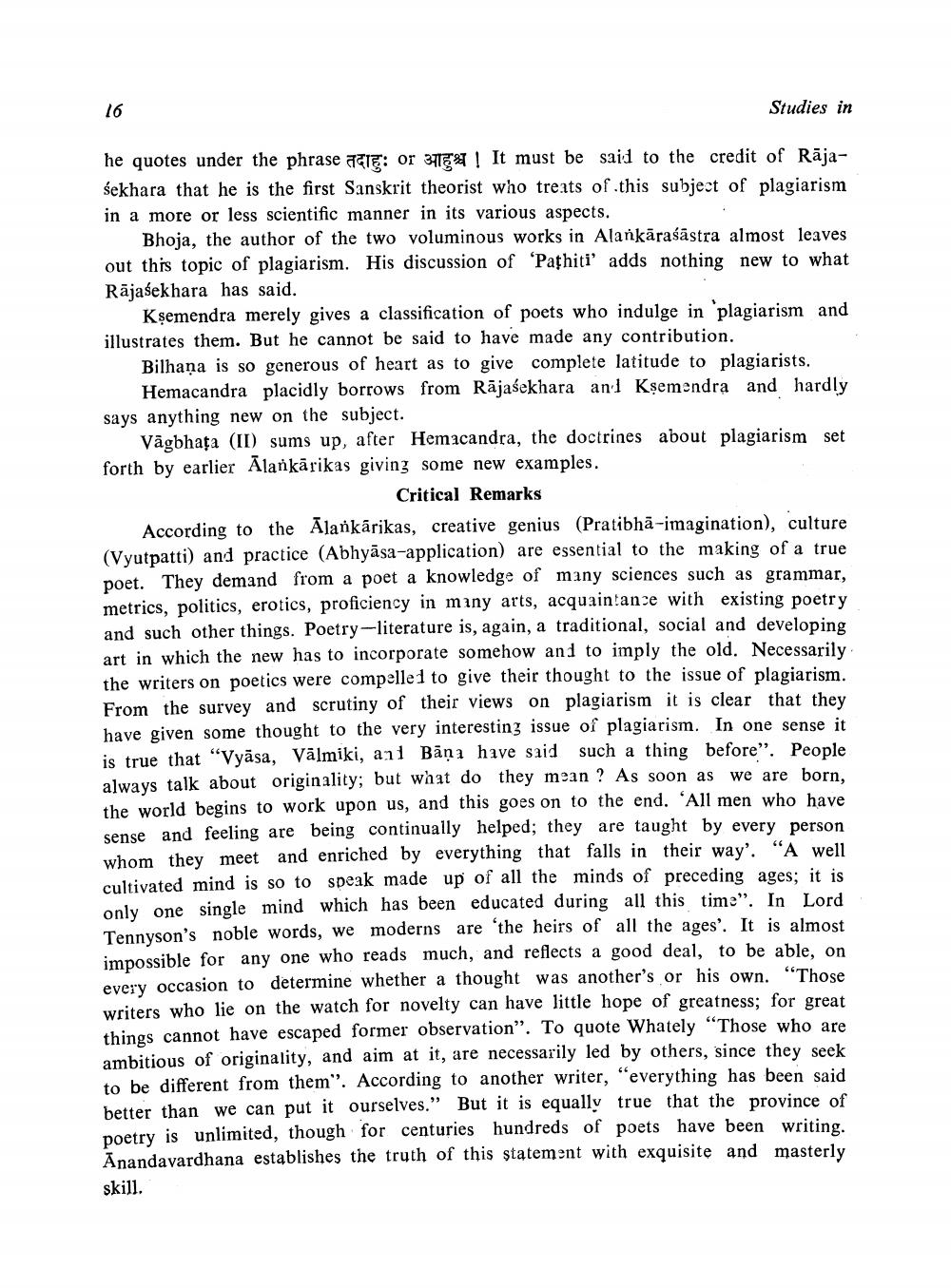________________
16
Studies in
he quotes under the phrase Ele: or 316 ! It must be said to the credit of Rājasekhara that he is the first Sanskrit theorist who treats of this subject of plagiarism in a more or less scientific manner in its various aspects.
Bhoja, the author of the two voluminous works in Alankāraśāstra almost leaves out this topic of plagiarism. His discussion of 'Pathiti' adds nothing new to what Rājasekhara has said.
Kşemendra merely gives a classification of poets who indulge in plagiarism and illustrates them. But he cannot be said to have made any contribution.
Bilhana is so generous of heart as to give complete latitude to plagiarists.
Hemacandra placidly borrows from Rājasekhara and Kșemendra and hardly says anything new on the subject.
Vägbhata (II) sums up, after Hemacandra, the doctrines about plagiarism set forth by earlier Alankārikas giving some new examples.
Critical Remarks According to the Alankārikas, creative genius (Pratibhā-imagination), culture (Vyutpatti) and practice (Abhyāsa-application) are essential to the making of a true poet. They demand from a poet a knowledge of many sciences such as grammar, metrics, politics, erotics, proficiency in many arts, acquaintance with existing poetry and such other things. Poetry-literature is, again, a traditional, social and developing art in which the new has to incorporate somehow and to imply the old. Necessarily the writers on poetics were compelled to give their thought to the issue of plagiarism. From the survey and scrutiny of their views on plagiarism it is clear that they have given some thought to the very interesting issue of plagiarism. In one sense it is true that "Vyāsa, Valmiki, ani Bāņu have said such a thing before". People always talk about originality; but what do they mean? As soon as we are born, the world begins to work upon us, and this goes on to the end. 'All men who have sense and feeling are being continually helped; they are taught by every person whom they meet and enriched by everything that falls in their way'. "A well cultivated mind is so to speak made up of all the minds of preceding ages; it is only one single mind which has been educated during all this time". In Lord Tennyson's noble words, we moderns are the heirs of all the ages'. It is almost impossible for any one who reads much, and reflects a good deal, to be able, on every occasion to determine whether a thought was another's or his own. “Those writers who lie on the watch for novelty can have little hope of greatness; for great things cannot have escaped former observation". To quote Whately "Those who are ambitious of originality, and aim at it, are necessarily led by others, since they seek to be different from them". According to another writer, “everything has been said better than we can put it ourselves." But it is equally true that the province of poetry is unlimited, though for centuries hundreds of poets have been writing. Anandavardhana establishes the truth of this statement with exquisite and masterly skill.




